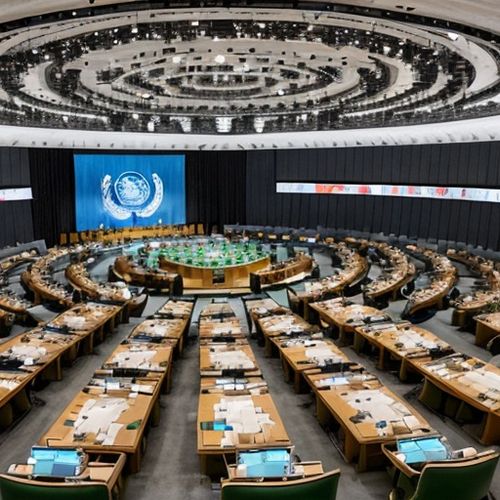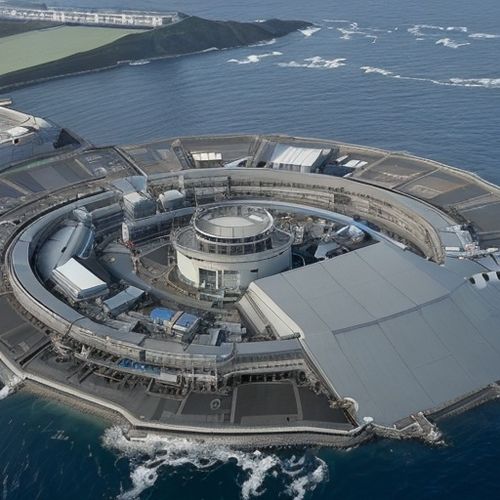South Korea has detected trace amounts of tritium in seawater samples following Japan’s controversial release of treated radioactive water from the Fukushima Daiichi nuclear plant. The findings, confirmed by South Korea’s Ministry of Oceans and Fisheries, have reignited debates over the safety and long-term environmental impact of Japan’s decision to discharge the water into the Pacific Ocean.
The measurements, taken at multiple monitoring stations off the Korean coast, showed tritium levels well below the World Health Organization’s (WHO) safety thresholds for drinking water. However, the mere presence of the radioactive isotope has fueled concerns among local fishermen, environmental activists, and neighboring countries. South Korean officials emphasized that the detected concentrations pose no immediate health risks, but the government has pledged to intensify monitoring efforts and maintain transparency with the public.
Japan’s discharge plan, which began in late August, involves the gradual release of over 1.3 million tons of treated water used to cool the reactors damaged in the 2011 Fukushima disaster. The water has been processed through the Advanced Liquid Processing System (ALPS) to remove most radioactive contaminants, except tritium, which is difficult to separate from water. Japanese authorities and the International Atomic Energy Agency (IAEA) have repeatedly stated that the diluted discharges meet global safety standards.
Despite these assurances, skepticism persists. In South Korea, opposition parties and civic groups have organized protests, demanding stronger government action to halt the discharges. Some critics argue that the long-term effects of tritium accumulation in marine ecosystems remain uncertain, calling for independent scientific reviews. The South Korean government, while acknowledging public unease, has stopped short of condemning Japan’s actions, instead focusing on bolstering its own surveillance systems.
The geopolitical ramifications of the issue are also coming into focus. China, another vocal opponent of Japan’s decision, has banned all seafood imports from Fukushima and surrounding prefectures, citing food safety concerns. South Korea, while not imposing a blanket ban, has maintained strict radiation testing on Japanese seafood since 2013. The latest tritium findings could further strain diplomatic relations in the region, particularly as Seoul and Tokyo have been working to mend ties under U.S. encouragement.
Meanwhile, South Korea’s fishing industry is bracing for potential fallout. Even though the tritium levels detected so far are negligible, consumer fears could devastate local seafood markets. Fishermen along the southern coast report declining sales, with some buyers avoiding seafood altogether due to radiation concerns. The government has launched public awareness campaigns to reassure citizens, but restoring confidence may take time.
Scientists remain divided on the issue. Some experts argue that the ocean’s natural dilution capacity will render the tritium harmless, pointing to precedents like nuclear plants in other countries that routinely release treated water containing low-level tritium. Others caution that continuous monitoring is essential, as the Fukushima discharge is unprecedented in scale and could set a risky precedent for future nuclear waste disposal.
As the situation develops, South Korea’s role as both a concerned neighbor and a scientific stakeholder will be closely watched. The government has pledged to share all monitoring data with the public and collaborate with international bodies to ensure accountability. For now, the detection of trace tritium serves as a reminder of the delicate balance between nuclear energy’s necessities and the imperative to protect marine environments.

By Emily Johnson/Apr 10, 2025

By John Smith/Apr 10, 2025

By Christopher Harris/Apr 10, 2025

By Noah Bell/Apr 10, 2025

By Rebecca Stewart/Apr 10, 2025

By Victoria Gonzalez/Apr 10, 2025

By Amanda Phillips/Apr 10, 2025

By Emma Thompson/Apr 10, 2025

By Lily Simpson/Apr 10, 2025

By Emma Thompson/Apr 10, 2025

By Sophia Lewis/Apr 10, 2025

By Rebecca Stewart/Apr 10, 2025

By Noah Bell/Apr 10, 2025

By Sophia Lewis/Apr 10, 2025

By Christopher Harris/Apr 10, 2025

By Eric Ward/Apr 10, 2025

By Daniel Scott/Apr 10, 2025